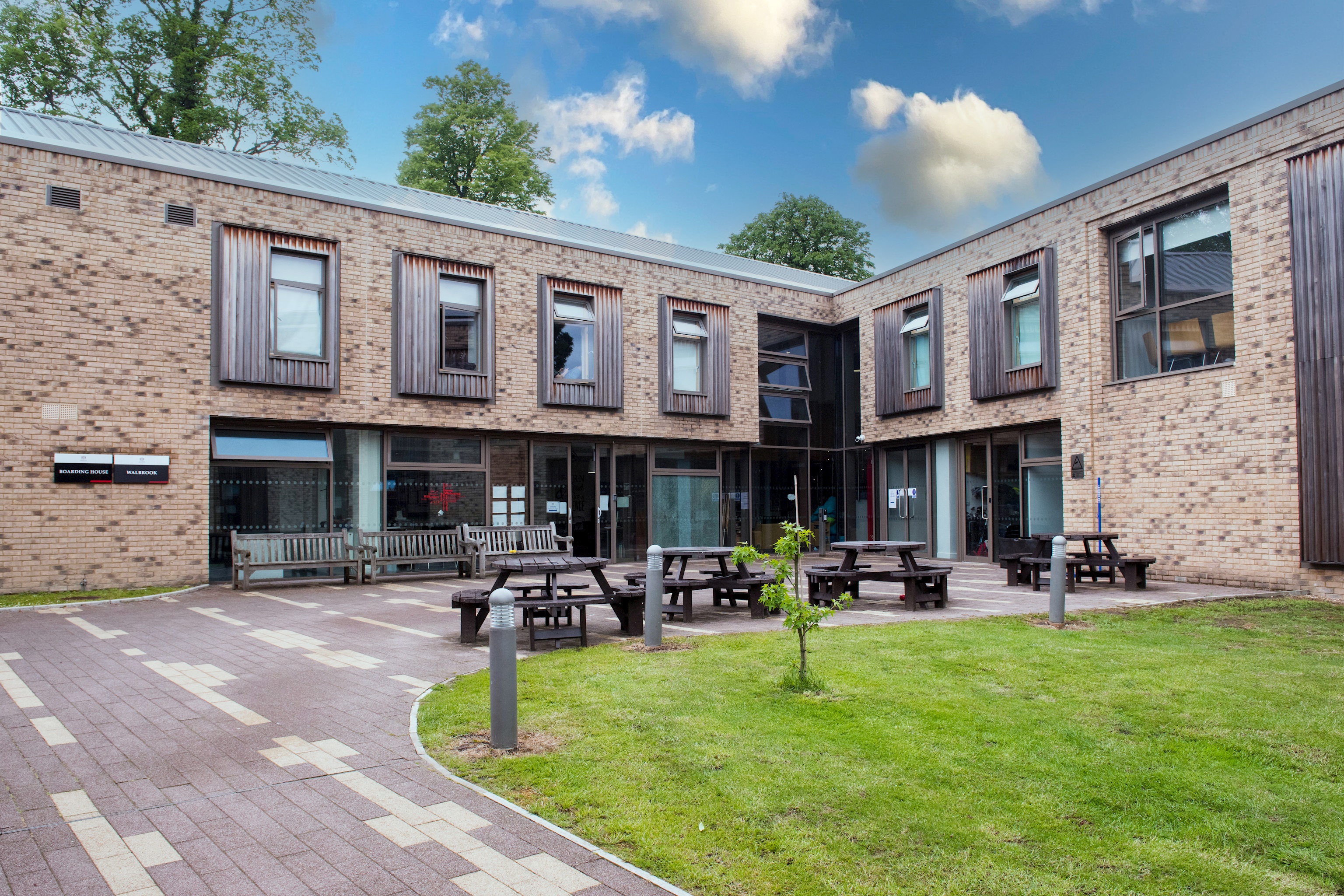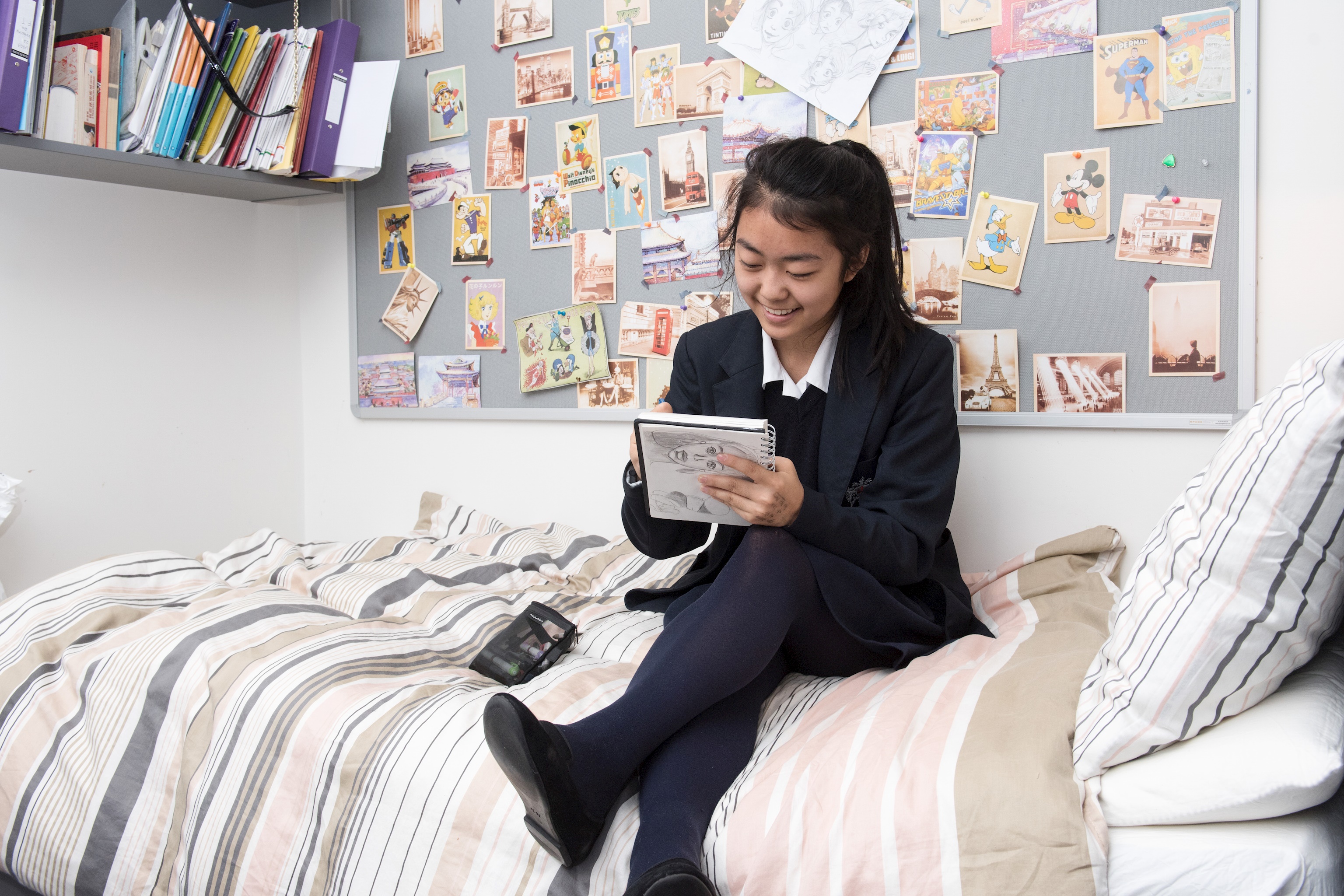Boarding at Freemen's is open to anyone in Year 9 or above in our modern, purpose-built accommodation called Walbrook House.
Walbrook is at the heart of the campus and accommodates approximately 60 pupils – a mix of full and weekly boarders from across the world as well as the UK.
Home from home
Boarding at Freemen’s is a home from home and provides a safe, happy environment for you to learn, achieve excellent exam results and make lifelong friends.
Our staff build strong, lasting relationships with every boarder, and work hard to provide you with a calm, caring, safe and supportive family atmosphere where you can develop self-knowledge, self-esteem and self-confidence.
When you come home to the boarding house, there is always someone there for you to advise and support you, to study with you and challenge and push you to be your best.
We promote mutual respect, good behaviour, responsibility, self-discipline and develop independence of action and decision-making and at the same time, help you develop integrity, judgement, initiative, loyalty and leadership skills.
Boarders stay in a “pod” with up to 10 other pupils in single and double rooms. Each room has desks, ample storage and a basin. Each pod has a bathroom and social area shared between them.
You can also enjoy a large open-plan space which has a TV, computer games, pool table and board games. There is also a device-free ‘Chill Out Zone', creative hub for arts and crafts, music practice room and two kitchens where boarders can make snacks.
There are 57 acres of the campus to explore with an award-winning swimming pool, gym, basketball and tennis courts, theatre and recently opened Sixth Form centre.
The Boarding House Staff
Being a small boarding house staff get to know the pupils well and every boarder benefits from individual attention and care.
The boarding house staff are full members of the school teaching community, and have extra responsibility for the welfare and pastoral care of the boarders. They undertake evening duties in the boarding house, supervise prep, run activities and ensure that bedtimes are adhered to. Boarding staff are always ready to be a listening ear to all pupils, regardless of the topic of conversation, and are entirely focused on ensuring each individual is safe and happy, and able to make the most of their potential.
The graduate assistants also work in the house every day of the week, providing academic and pastoral support, and can often be found challenging pupils at table football, chess or FIFA!




